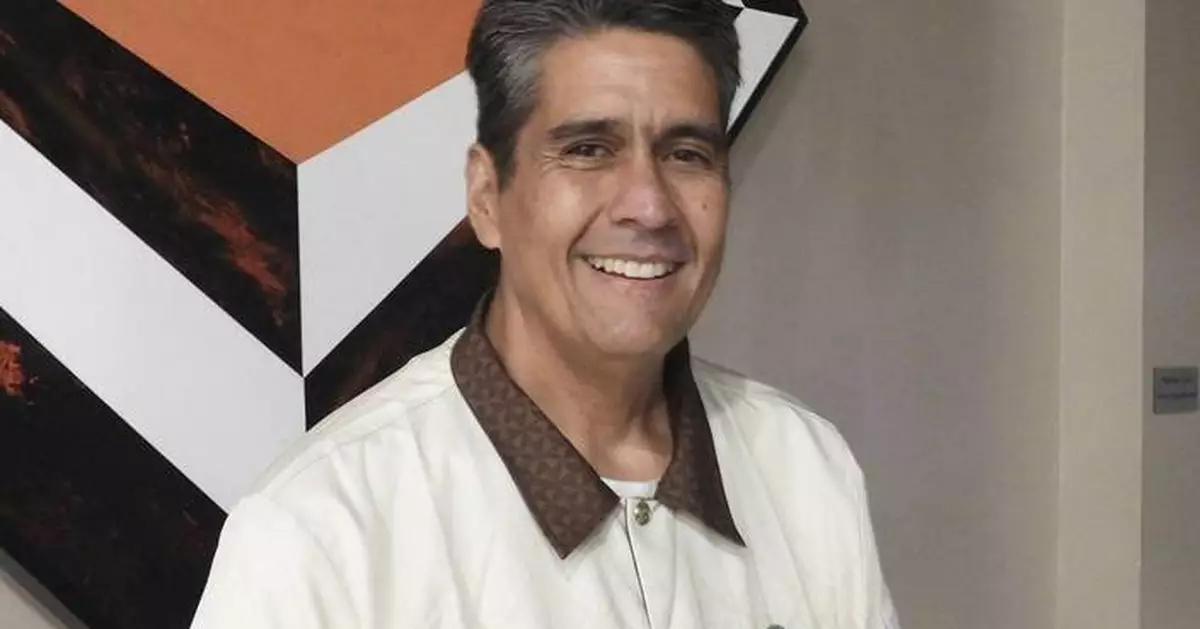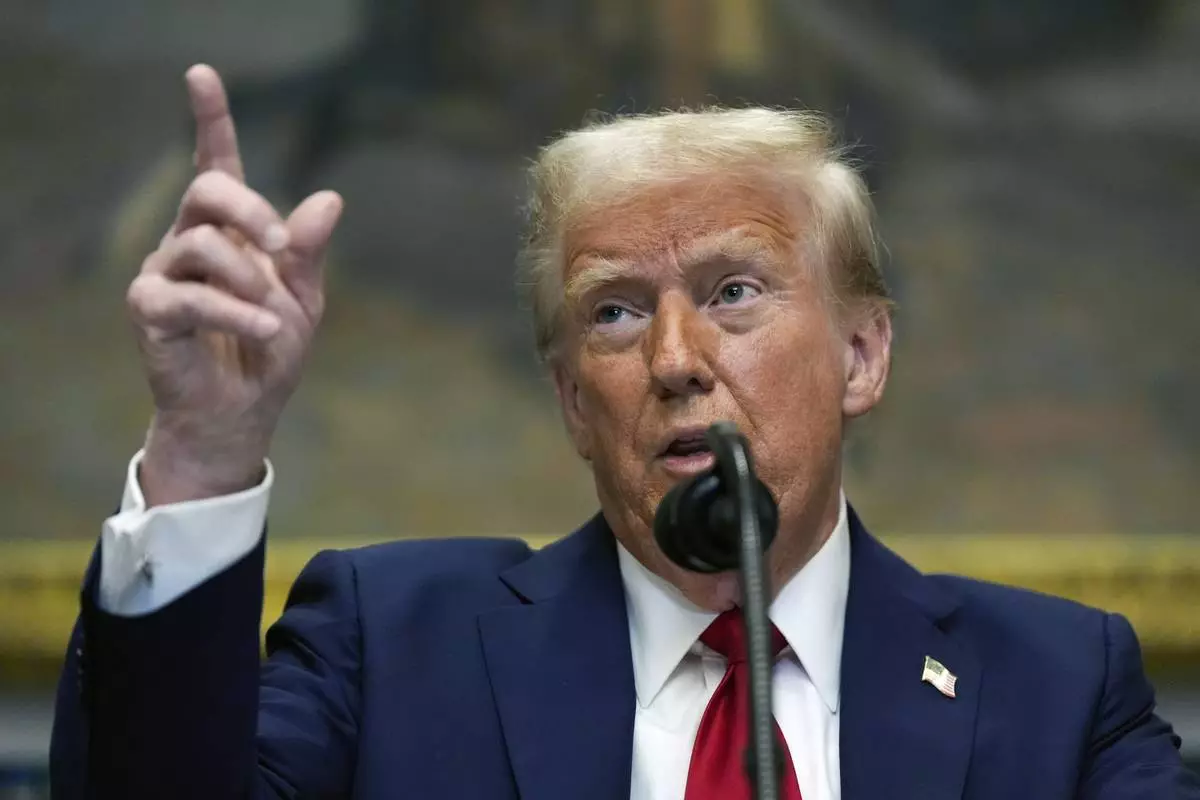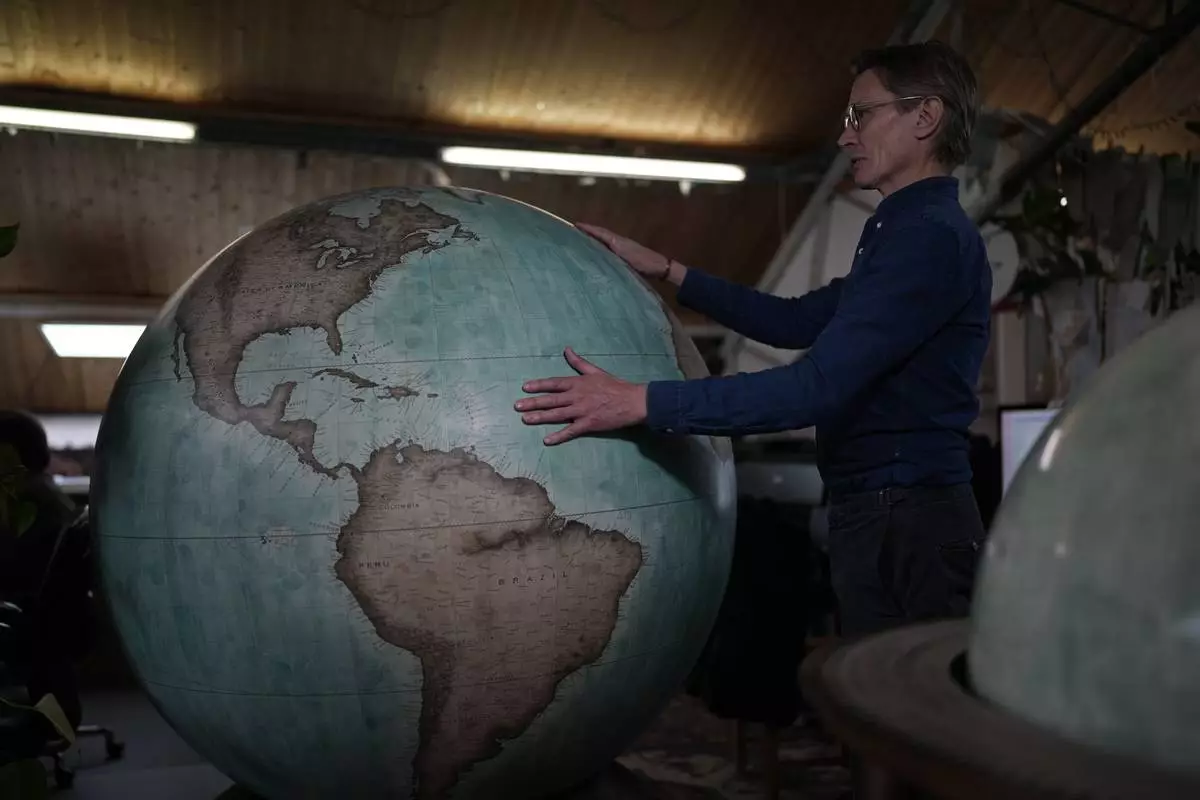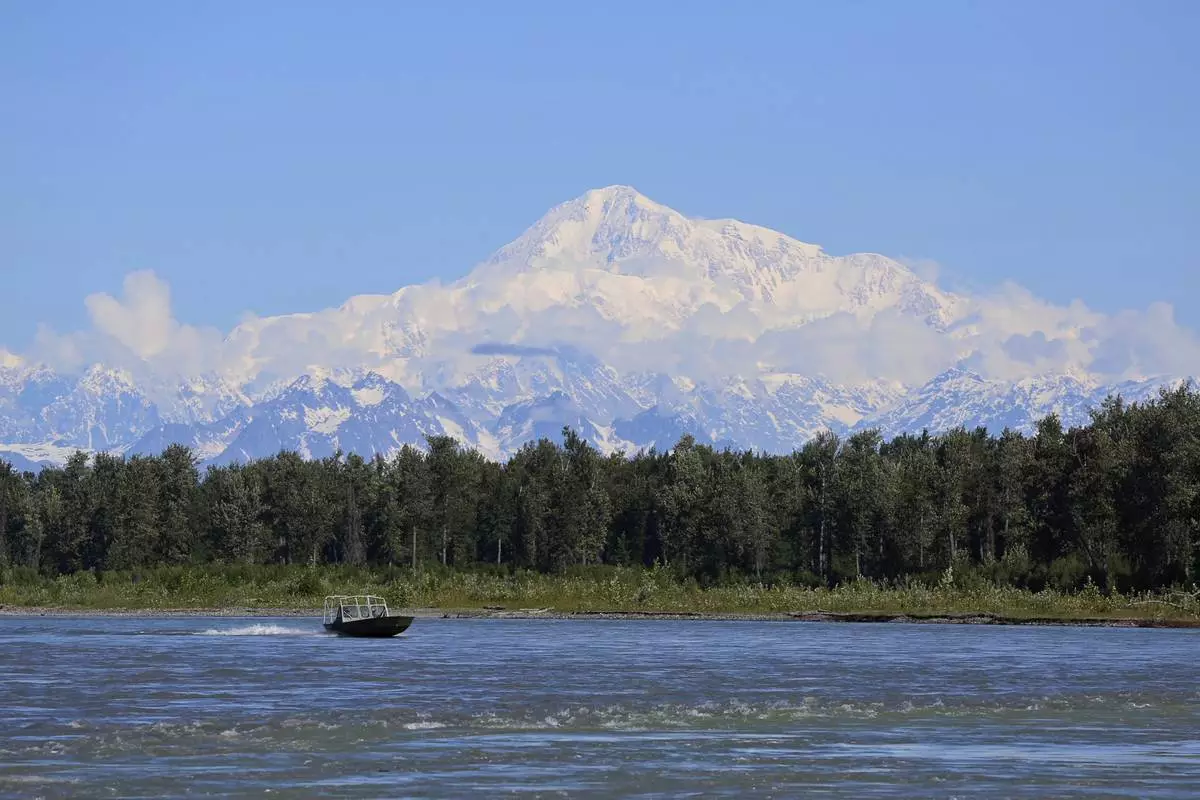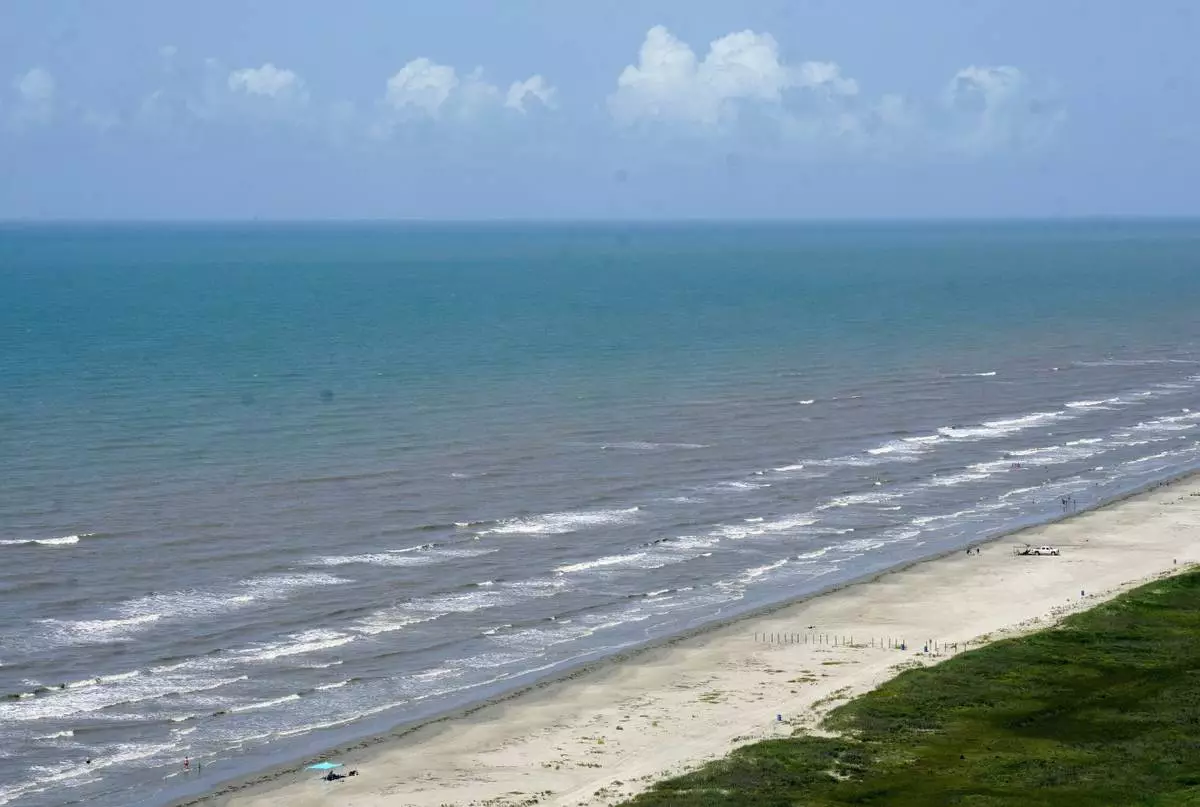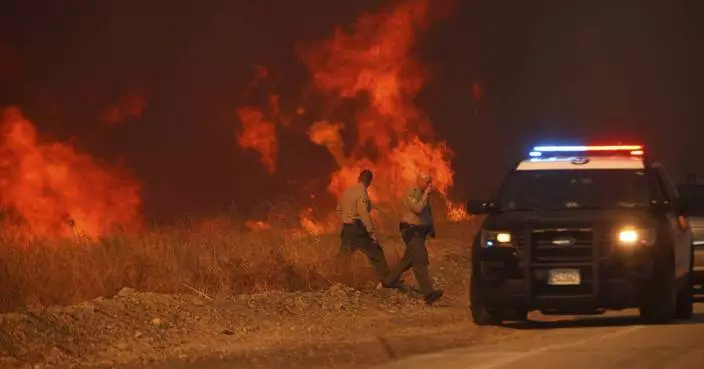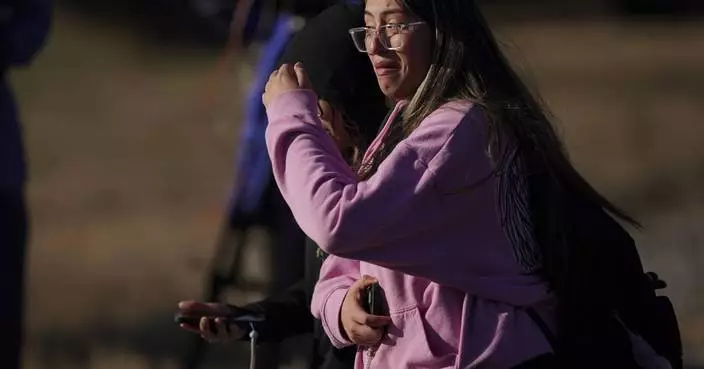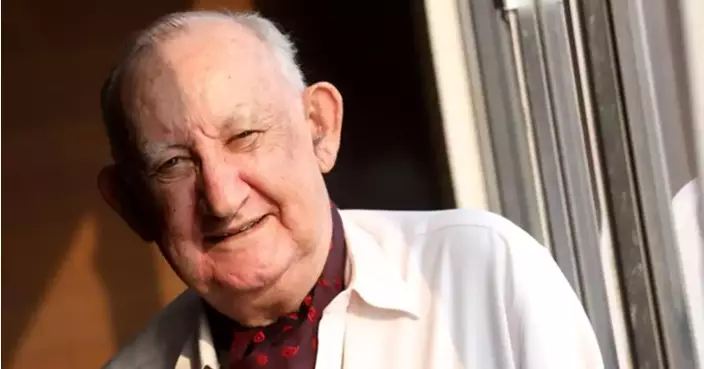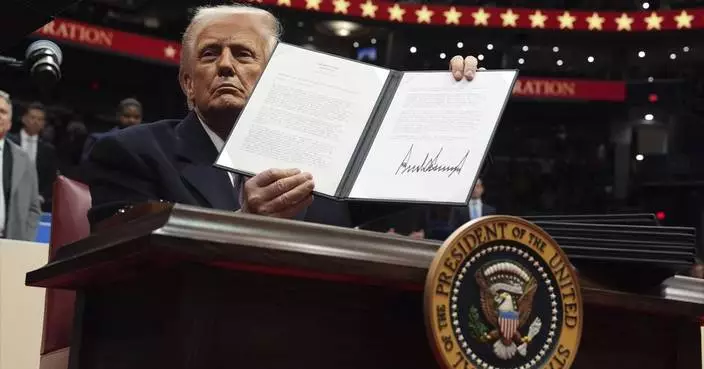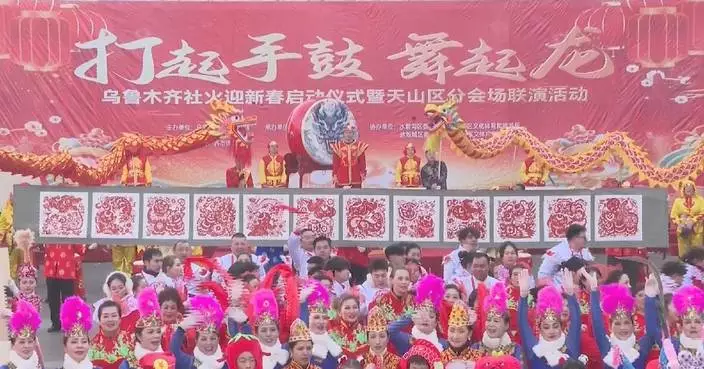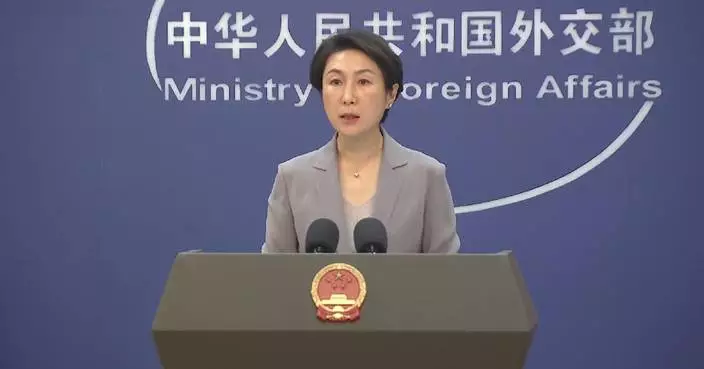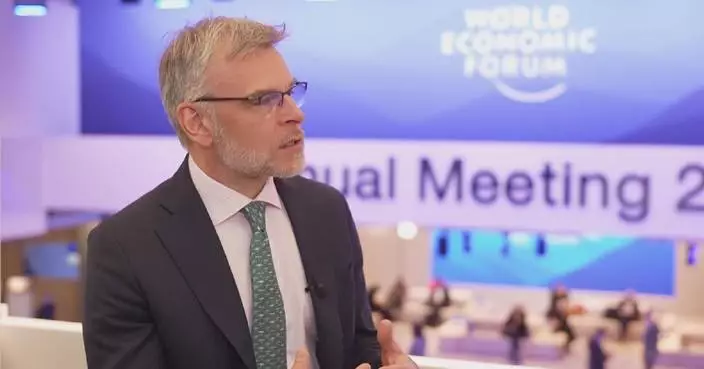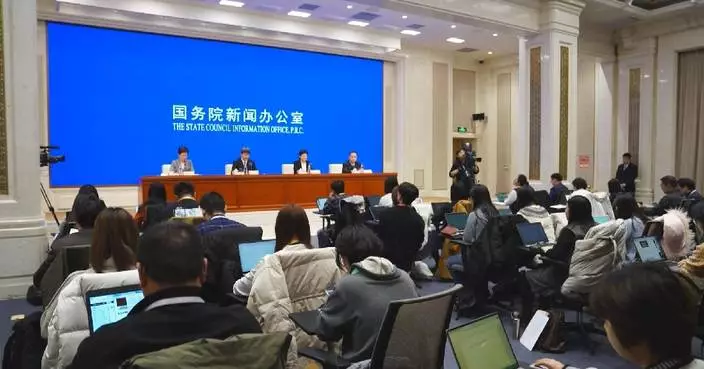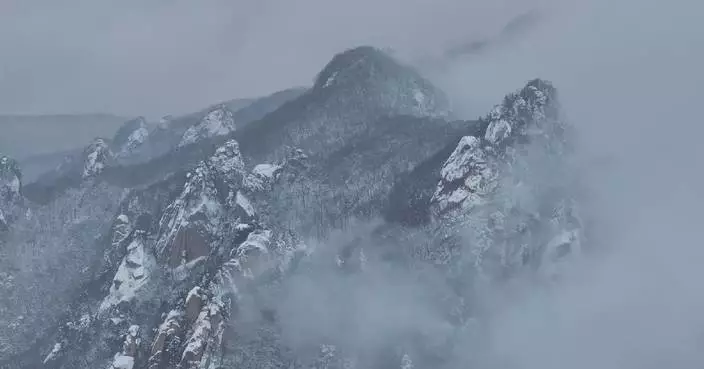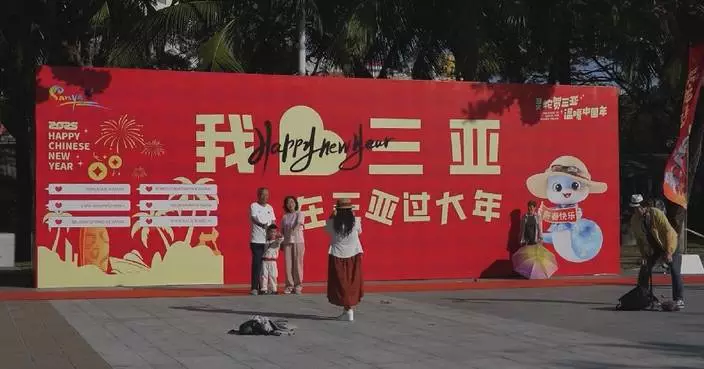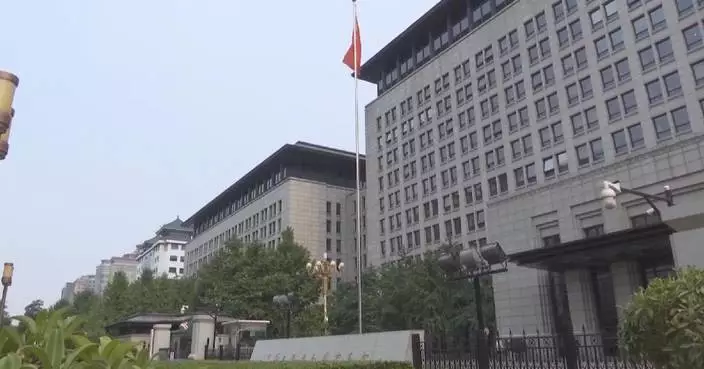NUKU'ALOFA, Tonga (AP) — Turmoil over China’s push for influence in the South Pacific has overshadowed the region’s most important diplomatic summit after a Pacific island leader apparently pledged to erase an affirmation of Taiwan’s involvement in the meeting from its closing statement, at Beijing’s behest.
The Pacific Islands Forum — a group of 18 island nations, plus Australia and New Zealand — initially included a reassertion of the standing of self-governing Taiwan, which China claims as its own territory, in a public communique Friday outlining leaders’ agreements after their weeklong annual meeting. But it was then removed on Saturday.
Officials at the summit in Nuku’alofa, Tonga, did not explain why the statement had changed. But video posted by a news outlet late on Sunday appeared to show a Pacific leader assuring China's special envoy to the Pacific, Qian Bo, that the reference to Taiwan would be removed after Qian demanded it in remarks to reporters.
The document row highlights a fraught, largely private regional debate about China’s role in the region that Pacific nations had sought to publicly quash ahead of the meeting. The chaotic end to the annual summit — at which member nations had emphasized regional unity and rejected major powers' jostling for influence in their affairs — shows how difficult it is for some of the world’s tiniest nations to balance the demands of larger countries who see them as geopolitical pawns, analysts said.
“The ability of the (forum) to pursue increasingly demanding regional agendas ... and at the same time manage the geopolitical interests of external actors is clearly at risk,” said Anna Powles, a professor at Massey University’s Center for Defense and Security Studies.
The public display of China’s influence-wielding as it denounced the summit's mention of Taiwan was “deeply troubling” and provoked questions about autonomy for the region’s top diplomatic body, she added. In 2019, six Pacific nations recognized Taiwan as an independent democracy — a snub to Beijing — but Taipei's allies in the region have since dwindled to three.
The Pacific Islands Forum began in 1971 for leaders to coordinate responses to the issues confronting a remote, diverse region where individual nations hold little solo sway on the global stage. Its leaders, from low-lying islands imperiled by rising seas, were at the forefront of urging action on climate change.
Annual meetings were not widely attended until the Pacific Ocean in recent years emerged as the site of an intense geopolitical contest for influence over waters, resources and political power. As Beijing wooed Pacific leaders with loans, diplomacy and security agreements, Western alarm about its foothold in the region grew, prompting a rapid expansion of attendance of forum summits.
This year, Pacific leaders sought to channel the global clamor toward their preferred topics — the climate change havoc and crises of debt, health and security, including fundraising for a Pacific-led climate and disaster resilience facility in Tonga — while warning major powers against overshadowing the summit with geopolitical squabbling.
“We don’t want them to fight in our backyard here. Take that elsewhere,” Baron Waqa, the forum’s secretary-general and a former president of Nauru, told reporters in July.
For most of the five-day summit, an uneasy calm prevailed, at least in public, with superpowers making unusual overtures of cooperation to opponents.
As the forum’s partner nations presented their offerings to Pacific leaders on Wednesday, U.S. Deputy Secretary of State Kurt Campbell said the United States and China had pledged to work together to find areas of cooperation on Pacific projects. In response, China's emissary, Qian, said Campbell’s words were encouraging and that cooperation between Beijing and Washington was in the region’s best interests — although those remarks were not recorded in a public version of his statement.
“It’s a different approach, that’s for sure,” said Mihai Sora, director of the Pacific Islands Program at the Lowy Institute, an Australian think tank, adding that in the past the United States and China had each cast the other as the region’s aggressor. “I remain deeply skeptical about what potential there would be for any credible cooperation.”
Still, it reflected an effort by superpowers to display new restraint. Even the announcement of a regional policing program, which Australia will fund to apparently counter China’s offers to equip and train Pacific police, did not provoke rancor from Beijing.
“China welcomes all parties to make concerted efforts for the development and prosperity of the Pacific Island countries,” said China’s Foreign Ministry spokesperson Lin Jian when asked about the initiative Wednesday.
Campbell was later recorded on a reporter’s microphone candidly telling Australia’s Prime Minister Anthony Albanese that the United States had stepped aside in the Pacific policing matter to allow Australia to take the lead.
At the summit's final news conference, Pacific nations underlined health care and climate initiatives as their central concerns for the year ahead. Their final communique set out a new tiered structure for partner nations, who must now prove their genuine involvement with a number of Pacific nations to secure permission to attend the annual summit. It also included a sentence affirming the forum’s 1992 agreement on Taiwan's standing with the organization.
That suggested leaders, who had spent Thursday in closed-door discussions, had privately agreed to allow Taiwan’s ongoing attendance at the summit even though the new tiered structure might otherwise exclude it.
“Taiwan was allowed to be in Tonga and have meetings with its partners and that continues to be the understanding going forward,” Surangel Whipps Jr, president of Palau, one of three Pacific nations to recognize Taiwan, told The Associated Press on Saturday.
The apparent assurance that Taiwan’s attendance would continue unchanged enraged Beijing, which has intensified pressure on Taipei's remaining allies to sever ties. Qian told reporters on Friday that the sentence in the leaders’ final statement “must be a mistake” and insisted a correction was required.
Soon after, the Pacific summit’s communique was unlinked on its website. The next day, officials circulated a new document to reporters with the line affirming Taiwan’s involvement removed — and no explanation for the change.
“The version as finalized does not change nor impact the decisions of the meeting, nor any standing decisions of the forum leaders,” a forum spokesperson, Lisa Williams-Lahari, told the AP in a written statement.
On Sunday night, however, Radio New Zealand published footage taken in public by a reporter that showed Cook Islands Prime Minister Mark Brown apparently telling the Chinese envoy, Qian, “we’ll remove it,” in reference to the document, as the pair shook hands. Brown did not immediately respond to AP’s request for comment.
Taiwan's foreign ministry said in a statement supplied to the AP Monday that the communique did not jeopardize its position in the forum or remove its right to participate.
“Taiwan expresses the strongest condemnation to China’s arrogant intervention and unreasonable behavior that undermines regional peace and stability,” spokesperson Jeff Liu said.
The Solomon Islands, which severed diplomatic ties with Taipei in 2019 in favor of Beijing, will host the 2025 summit. Before then, the forum should “urgently develop guardrails to prevent further disruption and undermining of regional unity,” Powles, the analyst, said.
——
Associated Press writers Emily Wang contributed reporting from Beijing and Johnson Lai from Taipei.
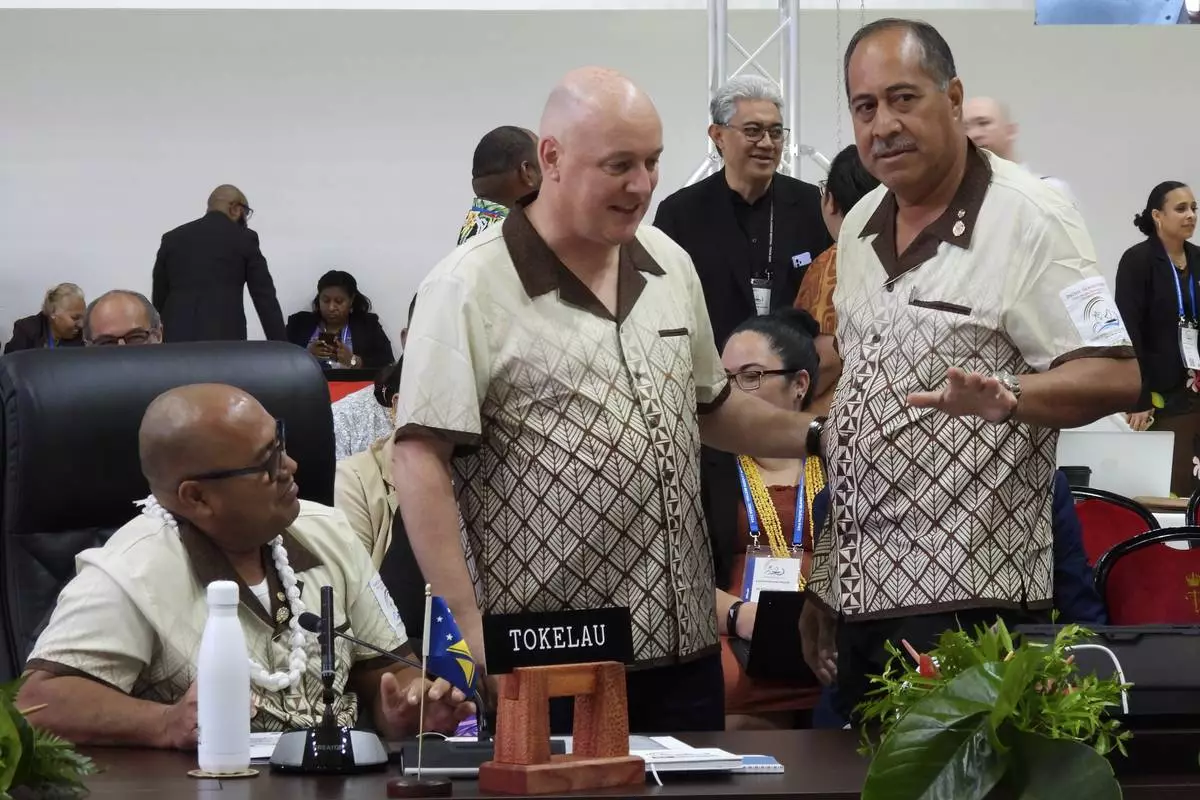
Ulu of Tokelau, Alapati Tavite, left, New Zealand Prime Minister Christopher Luxon and Niue Premier Dalton Tagelagi, right, chat before the Leaders' Plenary at the Pacific Islands Forum in Nuku'alofa, Tonga, Wednesday, Aug. 28, 2024. (AP Photo/Charlotte Graham-McLay)
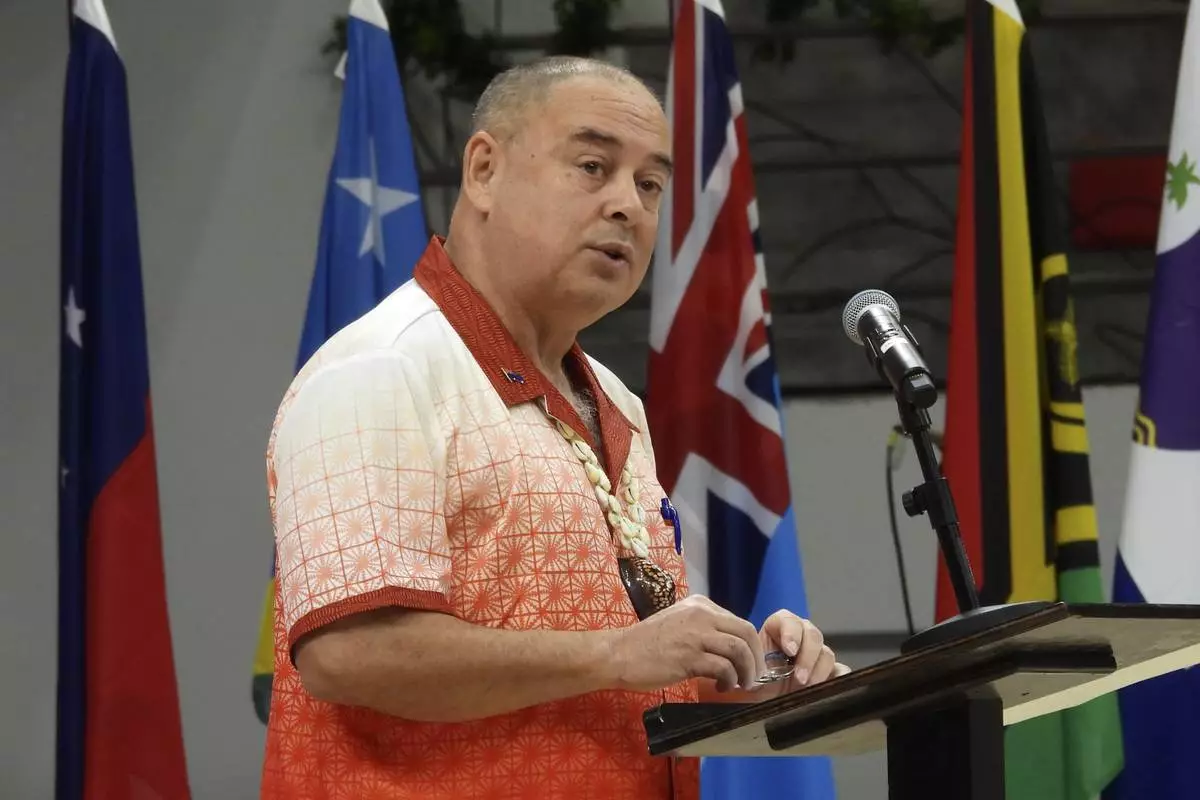
Cook Islands Prime Minister, and outgoing Chair of the Pacific Islands Forum, Mark Brown speaks at the opening of the annual Pacific Islands Forum leaders meeting in Nuku'alofa, Tonga, Monday, Aug. 26, 2024. (AP Photo/Charlotte Graham-McLay)
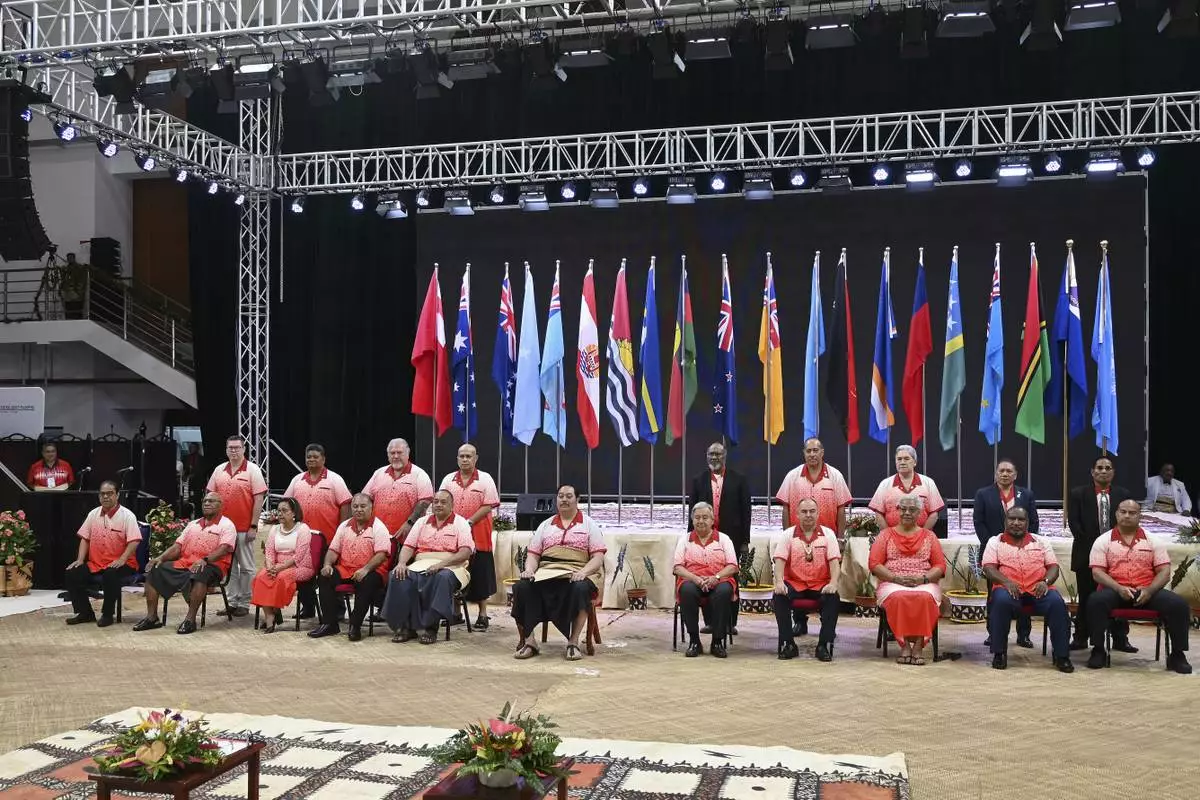
Leaders pose for a photo at the Pacific Islands Forum leaders meeting in Nuku'alofa, Tonga, Monday, August 26, 2024. (Ben Mckay/AAP Image via AP)
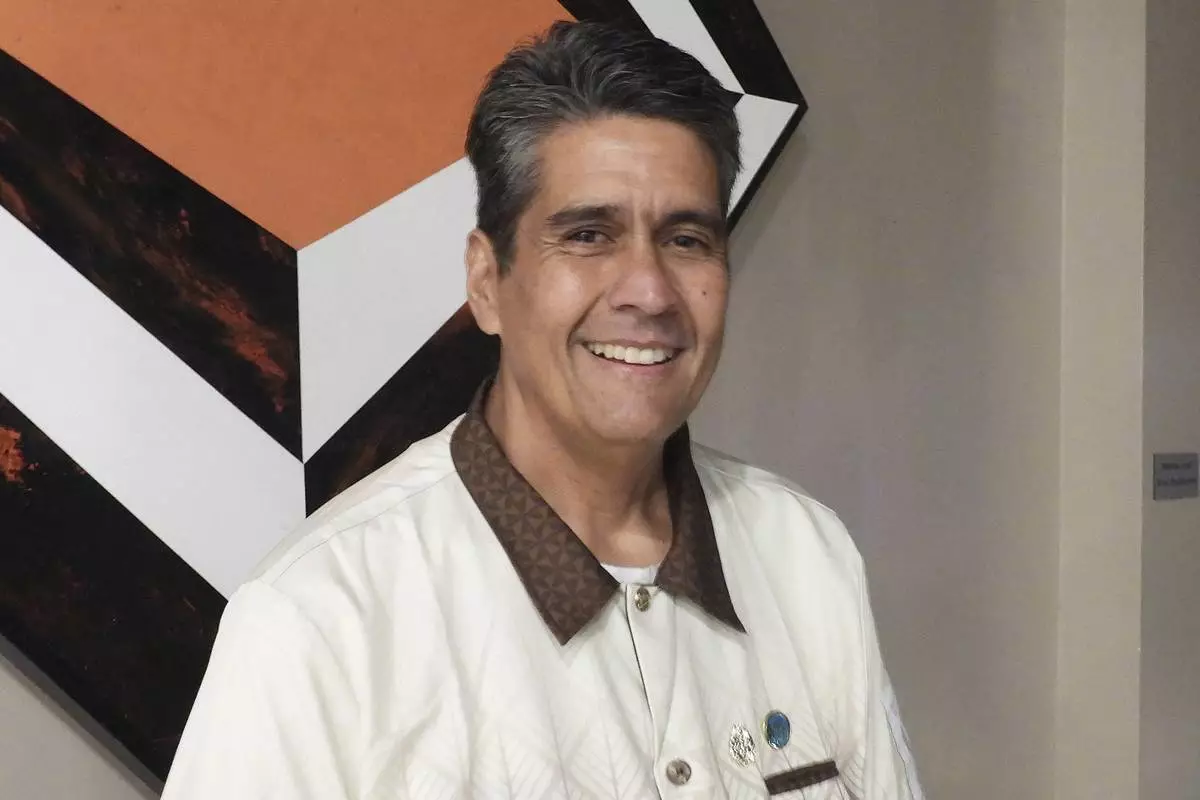
President of Palau, Surangel Whipps Jr, poses for a photograph on Aug. 28, 2024, in Nuku'alofa, Tonga. (AP Photo/Charlotte Graham-McLay)


